Register for free and continue reading
Join our growing army of changemakers and get unlimited access to our premium content
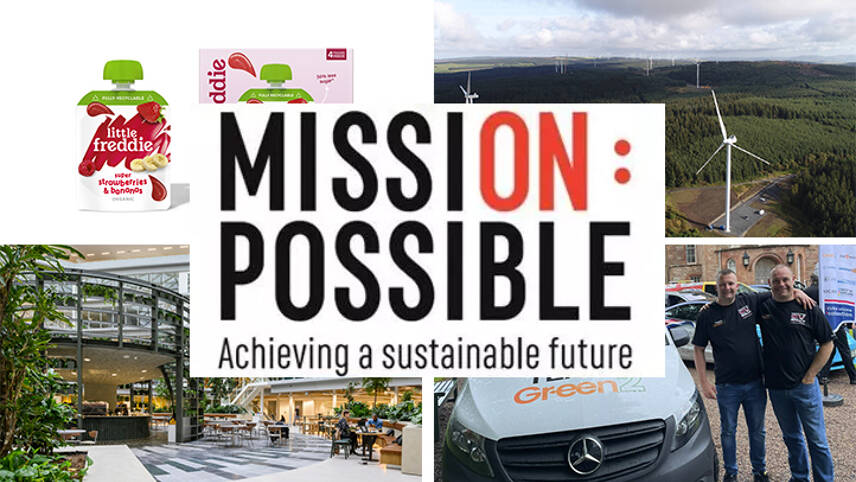
Published every week, this series charts how businesses and sustainability professionals are working to achieve their ‘Mission Possible’ across the campaign’s five key pillars – energy, resources, infrastructure, mobility and business leadership.
Across the UK and the world, leading businesses, cities, states and regions are turning environmental ambitions into action. Here, we round up five positive sustainability stories from this week.
ENERGY: Wales’ largest onshore wind farm officially opened
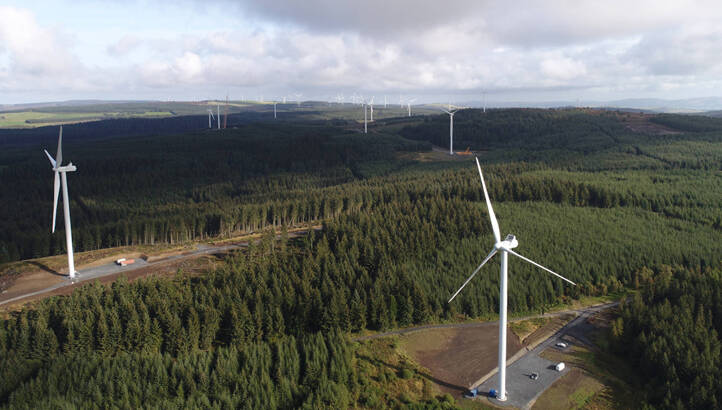
The start of the week saw RWE hosting an official opening ceremony for its Clocaenog Forest Wind Farm, which it claims is not only the largest in Wales but the largest in the UK.
The 96MW, 27-turbine wind farm near Denbeigh was originally completed in early 2021, but the energy giant worked with the Welsh Government to postpone the inauguration event due to Covid-19 restrictions. The wind farm has been the anchor for RWE’s largest community fund, which has been investing £768,000 into local causes annually since 2020. Many of the earliest grants went to Covid-19 response schemes.
Wales is targeting net-zero by 2050 and is aiming for 70% of its electricity consumption to be from renewables by 2030, up from 51% in 2020. RWE, meanwhile, is targeting a net-zero business and value chain by 2040.
RWE’s country chair for the UK Tom Glover said: “Having invested well over £3bn in Welsh energy projects over the last decade, we are committed to further green growth and to being a key partner in delivering Welsh Government aims of meeting the country’s electricity needs with renewable energy by 2035. Clocaenog will make a significant contribution to this aspiration, while also establishing a positive and enduring legacy for the local community.”
RESOURCES: Little Freddie touts UK’s first kerbside recyclable baby food pouch
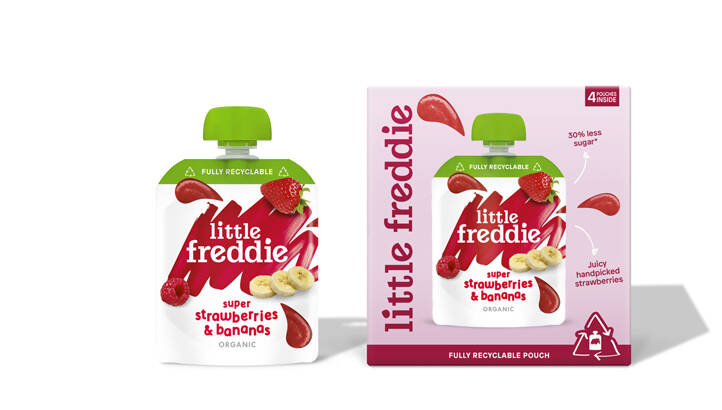
Flexible plastic packaging is becoming increasingly common in European shops, with brands enjoying benefits like its lightweight nature. It is estimated that flexible packaging is used to house 68% of all products sold within Europe annually by volume and accounts for 44% of the bloc’s post-consumer packaging waste.
But many flexible plastic packaging formats are not collected from households in the UK for recycling. Historically, they have proven challenging to recycle using mechanical infrastructure. Brands with full recyclability goals, therefore, face a dilemma – switch to refillables or rigids, increasing weight; or work to make a more sustainable flexible alternative.
Taking this second approach is challenger baby food brand Little Freddie. This week, the brand launched what it claims is the first pouch in its sector that can be placed in with dry mixed recycling for those living in the UK. The pouch is mono-material polypropylene; flexibles are often hard to recycle because they are multi-material. It is fully recyclable with the cap on and bears an on-pack label communicating this to shoppers. The pouches went on sale in Sainsbury’s and Ocado and will be used to house 350,000 servings of baby food over the next 12 months.
Little Freddie had already been operating a dedicated recycling scheme for mono-material pouches in partnership with Enval, and this will continue for its other products. It does intend to add the fully recyclable packaging to its entire pouch range in the UK.
MOBILITY: Great British EV rally helps dispel range anxiety
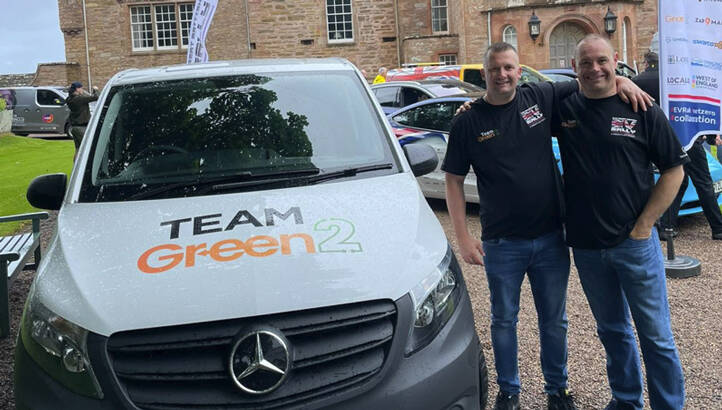
Image: Green 2
We often use this part of this article series to highlight a new vehicle launch, or a change in a fleet operator’s approach. This time, though, we’re having some leisure time and recapping on Greenfleet UK’s Great British EV Rally.
The Rally ran from 4 -8 July and saw teams travelling from John O’Groats to Land’s End – more than 1,200 miles – to showcase the capabilities of electric vehicles (EV) and the extent of the UK’s charging networks. It’s an event supported by a range of big businesses, including Ovo Energy, Mitie, DPD and BP Pulse, as well as SMEs such as supply chain solutions provider Green 2 Delivery. More than 50 drivers took part.
It was from Green 2 Delivery that edie received a post-Rally update on the event. Co-founders Lee Sibley and Jason Atkins took part for the first time in a pair of Mercedes-Benz eVito bans and their experience during the Rally has reignited their desire to push for better charging infrastructure for private sector EVs, especially larger models.
Sibley said: “One challenge was competing with the public at chargers and making sure that you used ones which were slightly out of the way. The charging infrastructure throughout was amazing and there really is no issue around being able to get a charge. When you’re travelling on some of the main motorways you do have to consider the fact that you may have to wait a little longer for a charger to become available.”
THE BUILT ENVIRONMENT: Edge sets net-zero target for all projects, eyes ‘absolute zero’
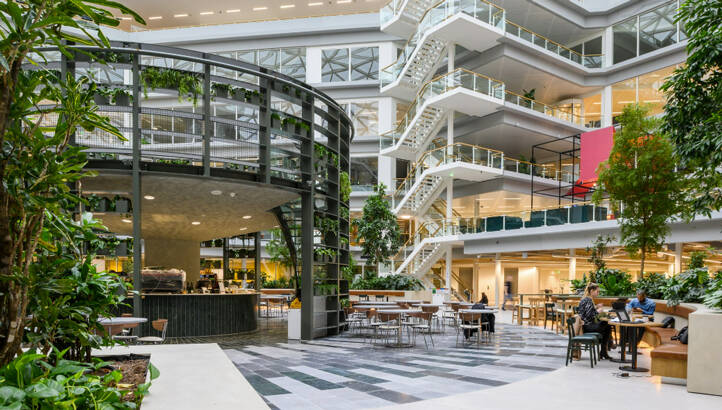
Image: Edge/ Bert Teunissen. Pictured: Edge Amsterdam West
Edge is perhaps best known for developing the iconic eponymous building in Amsterdam, which was hailed by Bloomberg as ‘the smartest building in the world’ shortly after it opened in 2015 with Deloitte as the main tenant. This week, the firm posted some updated climate commitments which it believes are truly cutting-edge -reaching net-zero for all new developments going forward, effective immediately, and becoming an ‘absolute zero-emission’ business by 2050.
On the net-zero target, Edge believes it will complete its first development to this standard in 2025. It will work to deliver at least a 50% reduction in absolute emissions, across all scopes, for its next projects, compared with its existing portfolio. Embodied and operational carbon emissions will be covered. Edge can then invest in insetting and offsetting to address residual emissions.
To go beyond net-zero and reach absolute zero, Edge will need to increase emissions reductions across the building value chain and lifecycle to minimise its use of offsetting. Getting to this point, the business has stated, “will require significant change across the construction industry including wider availability of reused materials, greater transparency from suppliers and reliance on renewable energy alone”.
Edge’s founder Coen van Oostrom said: “While we are currently using offsets, we do not see these as a viable solution to our climate problems and are totally committed to reducing our reliance on them to zero.”
BUSINESS LEADERSHIP: Simplyheath becomes world’s first B Corp certified health insurer
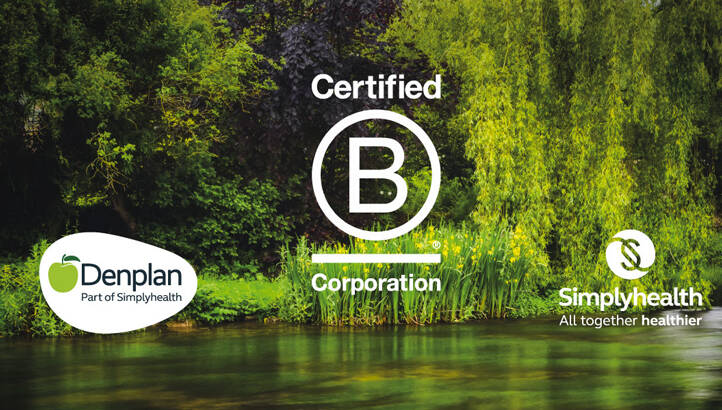
Wednesday (13 July) saw B Lab publishing its 2022 ‘Best for the World’ list, recognizing the B Corps that are the top of their class in terms of either their impact with customers; impact on communities; impact on the environment; excellent governance or supporting workers. Click here for edie’s coverage of that story.
In related news, UK-based health and dental plan provider Simplyhealth became the world’s first health insurer to achieve B Corp status. The firm achieved 91.9 points on the B Impact Assessment; organisations need to score a minimum of 80 points to certify. The assessment measures a firm’s positive impact on workers, suppliers, the communities it serves and the environment.
Regarding environmental impact, SimplyHealth is already certified as carbon neutral and has a 2030 net-zero target in place. It has also been working to increase recycling and decrease waste, decarbonise employee travel, improve energy and water efficiency and procure clean energy.
Simplyhealth’s chief executive Dr Sneh Khemka said that while the firm is “incredibly proud to have achieved a high score in its B Impact Assessment”, it will “continue to challenge itself to do more”.


The headline should say Simplyhealth, not Simplyheath! It would also be interesting to know who has certified it as carbon neutral, and to what standard.
The crux of the matter is the origin of the electricity
I do not see it here.
And renewable energy, wind and solar in the main, are nature dependent, and thus variable.
The only major, reliable, CO2 free, and totally under our control, power source, is nuclear. But I agree that it does not like variable output demand
I await the tempest!!!!
Richard Phillips